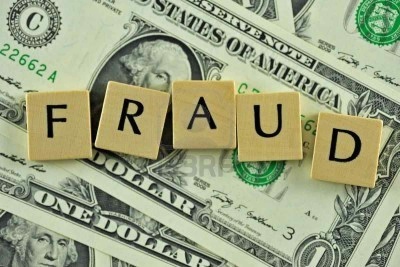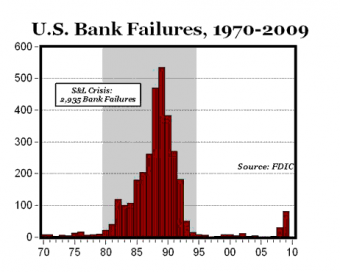Savings and loan fraud
 | |
| Date | 1986 - 1995 |
|---|---|
| Location | US |
| Perpetrators | The cabal |
| Exposed by | William K. Black |
| Interest of | American Continental Corporation, Pete Brewton, Brian Downing Quig |
| Description | "The largest theft in the history of the world", carried out in broad daylight, with legislative assistance. So many US politicians were directly or indirectly involved, that it was never properly exposed and efforts are ongoing to try to hide the fact that it was no mere accident. |
Contents
Official Narrative
Wikipedia refers to the event as the "Savings and loan crisis", and lists a set of causes as if it were an unforeseen event.[1] As with the commercially-controlled media in general, it obscures the fact that in financial transactions, every billion dollars lost to the taxpayer is a dollar is a billion dollars which someone else gains.
Problems
The S & L fraud was entirely predictable and Pete Brewton suggests in no way accidental.[2] It has been called "the largest theft in the history of the world" (before the modern "bailouts", of which it was a foreshadowing).[3]
Background
In the early 1980s, under Ronald Reagan, Vice President George H. W. Bush managed regulatory changes took place that gave the S&L industry new powers and for the first time in history measures were taken to increase the profitability of S&Ls at the expense of promoting home ownership.[2]
Bush Family
As well as George Bush Sr., Neil Bush (reprimanded by federal regulators for the "multiple conflicts of interest") and Jeb Bush were implicated in the S & L fraud.[3]
Prosecutions?
Charles Keating, who notoriously lead the plunder of Lincoln Savings was jailed. Prosecutions however hardly scratched the surface of those involved. Pete Brewton states that this was because the US Congress was full of people who had personally profited and so could be counted on to oppose a real investigation.[2]
Profit
Pete Brewton has estimated that the S & L Fraudsters netted perhaps $500 billion not including profits made from the resultant property price bubble.[2] Another estimate puts the cost at $1.4 trillion.[3]
Examples
| Page name | Description |
|---|---|
| CenTrust Bank | Controlled by Bank of Credit and Commerce International. Drug money laundering etc... |
| Indian Springs State Bank | Kansas bank which went bankrupt after being looted by CIA-connected airline owner Farhad Azima |
| Lincoln Savings | An infamous part of the multi-billion dollar Savings and loan fraud. |
| Vernon Savings and Loan |
Related Quotation
| Page | Quote | Author | Date |
|---|---|---|---|
| 1980s | “The Savings and Loan crisis was a huge wealth transfer... According to people like Houston Post's Pete Brewton It was intelligence and organized crime that essentially collaborated with major Wall St banks at the time like Drexel Burnham Lambert and some of these other groups. This particular nexus, by taking like 6 billion dollars out of the savings and loan industry when it was deregulated basically buy what they didn't already own of corporate America. And so you have the same group more or less having compromised politicians through sex blackmail for decades, and by the time they own corporate America, due to the role that corporate America plays in US politics they can essentially buy everyone else out... During the same period of time, this network was also basically finding a way to off-the-books finance, erm "activities" — secret wars, really — all over the globe, not just in Nicaragua, at the the time, but really congressional approval to finance proxy armies... and for a long time this was justified with "this is necessary to fight the communists" and of course with the fall of the Soviet Union that excuse sort of collapses. And from that point, I see that power nexus in the 80s, after the fall of the Soviet Union I see that there's two, really a split, and you see it with US politics today. You have people... hungry for a return to the Reagan era days where America is on top and use these same types of illegal activities to further US imperialism, with a sort of warped idea of American nationalism. And then you have this other side that's the internationalist camp or the globalists that want global governance, and you sort of have them competing but... both factions go back to Iran contra and these intelligence, organized crime groups.” | Whitney Webb | November 2022 |
